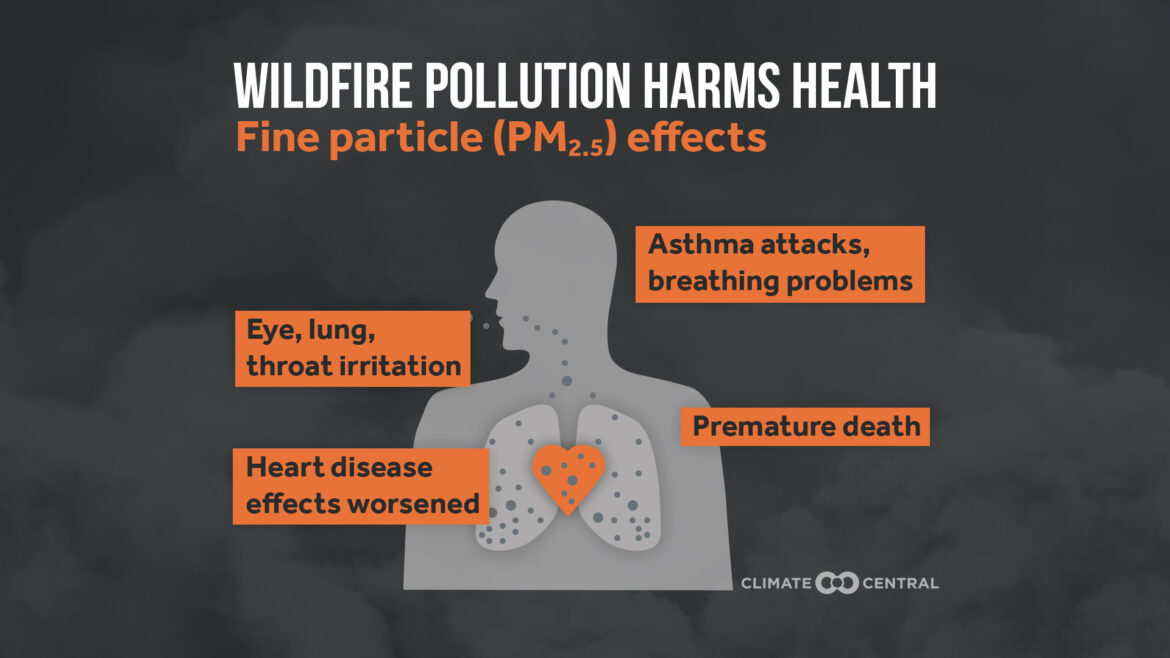Poor air quality and your health
By Jonathan Dickman, MD, Ph.D
When it smells like a campfire outside this may bring back memories of setting up a tent at a local park. This, however, is not the ideal odor when you are only stepping outside your own home. This year our neighborhood has been hit with poor air quality from uncontrolled Canadian wildfires and that is why you can smell, and sometimes see, smoke here in the city. In addition, the hot weather combined with city pollution has also resulted in days high in ozone which, although often not something you can easily see or smell, can also contribute to poor outdoor air quality. Thanks to global warming, we are guaranteed to have more days of poor air quality in the summer months in the future.
So what to do? The first is to periodically check the neighborhood air quality to increase your awareness of this problem. This can be done by checking phone apps, the newspaper or listening to the local news. When the air quality is poor, you want to maximize your exposure to indoor filtered air. We encourage everyone to exercise at least 30 minutes daily, but on these days plan to do this activity indoors instead of outdoors. Your body needs to use more oxygen and thus you breathe more air when exercising and this increases your exposure to pollution if done outdoors. On better air quality days, avoid exercising near areas with a lot of car traffic and local pollution. Any time you are going to expend more energy, be mindful of where you do this activity to keep your lungs healthy!
In addition to exercising indoors, take extra steps of caution if you are more sensitive to poor air quality. This includes people with lung diseases such as asthma, reactive airway disease or chronic obstructive pulmonary disease (COPD). If you have these conditions, your lungs struggle with irritants from poor air quality and you may find yourself needing to adjust your inhalers with your doctor if you have problems. Children also need to take extra caution as they use a lot of oxygen to help them grow and be active. During poor air quality days, people with lung disease and children may want to take extra steps to stay indoors to keep their lungs healthy.
Finally, while minimizing your exposure to poor air quality, also try decreasing the amount of pollution you create to improve the local air you breathe. Carpooling, walking and biking instead of driving and decreasing home energy use can all improve the air you breathe. Using battery-operated lawn equipment instead of using gasoline can also be a good next step. Being “green” by minimizing energy use has always been a good idea, but now it seems more important than ever to keep the air we breathe safe. Do not burn leaves, wood or trash in your neighborhood as this also pollutes the air (similar to the Canadian wildfires!). Of course, quitting smoking or vaping is helpful in reducing direct pollution to your lungs and those around you. Stopping smoking or vaping is also the single most important thing you can do to improve your health!
While low air quality is frustrating, remember that there are ways of staying healthy. Keep a watch on the local air quality and move your activities indoors when the air quality is poor. In addition, any step you can take to decrease the energy you use at home and reduce your carbon footprint will also help the air you breathe stay safer. When in doubt, talk with your doctor if the air seems to be bothering you and they can help adjust your medications and help you breathe easy.
Jonathan Dickman, MD, PhD is a family physician at United Family Physicians, 233 Grand Ave, Saint Paul, 651-241-5200.




